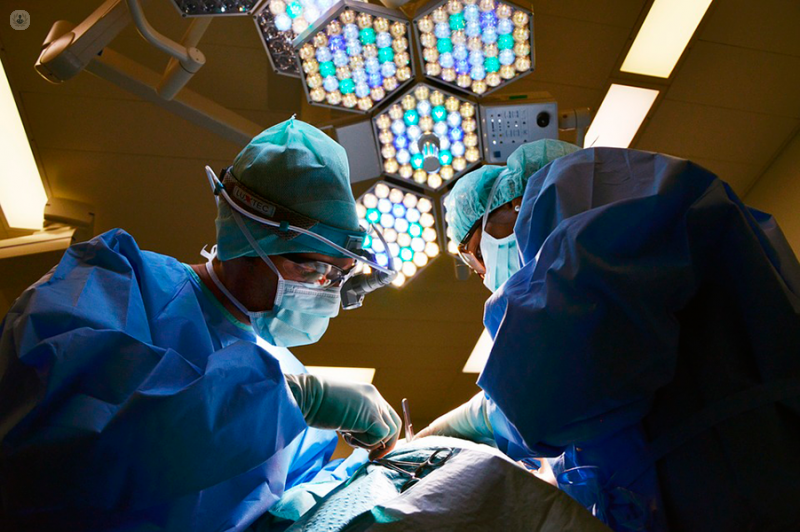Ulcerative colitis: considering your surgical options
Autore:Ulcerative colitis is an inflammatory condition affecting the colon and rectum. Usually, it can be treated with medication such as steroids, but where this isn’t effective or an acute flare-up is occurring, surgery might be necessary. We spoke to consultant colorectal surgeon Mr Richard Lovegrove about your surgical options, and what factors to consider in the short and long term.

Why is surgery sometimes necessary for ulcerative colitis?
The three main reasons we consider surgery for someone with ulcerative colitis are if:
- you are having an acute flare-up of colitis, which is making you increasingly unwell or causing the colon to distend
- we have tried management with medication and it fails to settle the condition
- we have detected pre-cancerous or cancerous changes within the bowel
What are my surgical options?
Surgery for ulcerative colitis involves removing all or part of the colon and rectum in order to settle your symptoms. You won’t normally need medication for ulcerative colitis following surgery.
After we carry out this operation it is necessary to ensure your body can still get rid of waste products safely. The surgical options are:
- Ileostomy – this is an operation to create a hole (stoma) in your abdomen that attaches to your small intestine. Waste products that would normally travel through your large intestine and out through the anus can instead leave through the stoma into a small bag.
- Ileal pouch – an ileal pouch is an internal pouch connecting your intestine to your anus. This means you won’t need an external bag or a permanent stoma. Surgery involves taking a part of your small intestine to form the pouch.
- Ileorectal anastomosis – this involves joining the small intestine directly with the rectum
When do I need to make a decision?
In many cases of ulcerative colitis we can remove just the colon and create a temporary ileostomy. Depending on what you decide, the rectum can be removed and a stoma, anastomosis or pouch created at a later date. Having this time to decide can be useful, especially if you are a woman considering having a family who would like to put off having further surgery.
However, if we have detected cancerous or pre-cancerous growths in your colon, it’s important to remove the whole colon and rectum right away – so you’ll need to make an immediate choice about whether you want an ileostomy or ileal pouch. Unfortunately, if cancer is detected in the lower rectum, then your only option is an ileostomy – as it’s essential that we ensure you are clear of the cancer.
What is the best option for me?
The idea of having a waste bag can feel both daunting and inconvenient, and many patients understandably prefer the idea of an internal solution. Although in the vast majority of cases patients with an ileal pouch report a good quality of life, it’s important to be aware of the following:
- Most patients with an ileal pouch will open their bowel between 5 and 7 times per day, and may occasionally need to get up at night.
- Some patients will experience urgency – the need to rush to the toilet.
- Up to half of patients with an ileal pouch will experience pouchitis, or inflammation of the pouch.
The benefit of being able to carry out the operation in two stages is that you can sample life with an ileostomy first, and see if it suits you.
Finally, an ileorectal anastomosis is another attractive option if you would like to avoid having an external waste bag. You will still have the option to have an ileal pouch at a later date should the rectum ever become inflamed.
If you would like to discuss your surgical options for ulcerative colitis further, book a consultation with Mr Richard Lovegrove.


